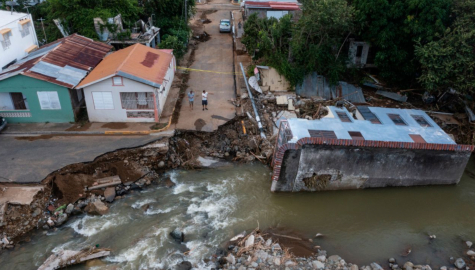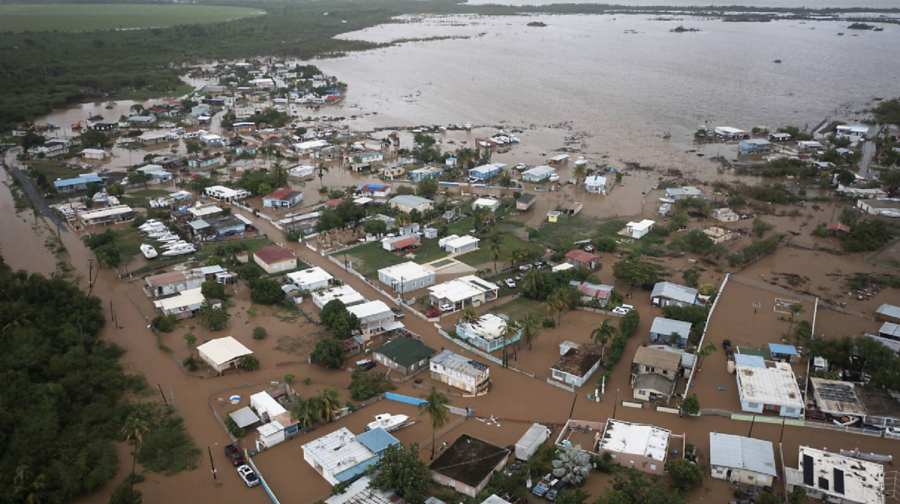The Puerto Rican people’s plight
Hurricane Fiona has wrought havoc on an island still recovering from Hurricane Maria
September 29, 2022
In 2017, Hurricane Maria made landfall as a Category 4 hurricane, devastating the island of Puerto Rico. Many of the amenities that most Americans take for granted were lost, with some areas of the island remaining without power for 11 months.
When Hurricane Fiona struck on Sunday, Sept. 18 many Puerto Ricans were still recovering from Maria. The cause of this is multifaceted, as Puerto Rico, in terms of GDP per capita, is more impoverished than many U.S. states, meaning that many people cannot afford the necessary repairs their homes require. In combination with this, the infrastructure of Puerto Rico has notoriously failed in times of crisis, with electricity and running water being interrupted whenever a hurricane strikes.
Hurricane Fiona has followed this trend, leaving hundreds of thousands of residents unable to access these basic amenities. This begs the question: who can provide the help they so desperately need?

Several private organizations, as well as the Federal Emergency Management Agency (FEMA), are on the scene attempting to provide individuals with food, water and shelter. However, the Puerto Rican government has failed to distribute these items properly in the past. During Hurricane Maria, an entire warehouse of emergency supplies was found untouched. While it is uncertain whether this was due to incompetence or malice, what is certain is that the Puerto Rican people suffered.
Since the government has shown that it is not the most effective at distributing aid, many Puerto Ricans will have to rely on private charities. These organizations cannot compare their funding to that of federal agencies, which means that they are reliant upon our donations.
Federal organizations like FEMA must directly work with the Puerto Rican government, leading to the possibility of aid once again being misplaced. However, private charities can distribute their support however they please, allowing aid to find its way to those who are the most desperate. Hence, the Puerto Rican people can benefit most from private charities.
Although Puerto Rico is an unincorporated territory and not a state, its residents are still U.S. citizens, and it is our duty as citizens to support each other in times of need. Sadly, our taxes’ federal support is insufficient, meaning that the American people must provide charities with the necessary resources.
Many college students may believe they lack the resources to help, but this is untrue. There are several ways we can alleviate the plight of the Puerto Rican people, whether it be volunteering at a supply drive, donating to a charity or even traveling to Puerto Rico to assist in the rebuilding of houses.
Over spring break last year, I had the opportunity to travel to Puerto Rico on a mission trip with Two Cities Church. I got to teach others about Jesus Christ while assisting with their physical needs. In cooperation with an organization called Send Relief, my team was able to help repair two roofs. Due to their flat shape, these roofs often develop leaks, which many residents cannot afford to fix. Many families across Puerto Rico endure similar hardships, and hurricanes such as Maria and Fiona only exacerbate this problem.
After my trip to Puerto Rico, I realized that even students could help the Puerto Rican people. I only spent a week in the territory, but many organizations like Send Relief reside there permanently. In the same way they have provided aid to the Puerto Rican people, it is our turn to assist these charities as they help the island recover from Hurricane Fiona.
Correction Sept. 29: An earlier version of this article misstated the name of the article’s author. The author is Pierce Sandlin.






















